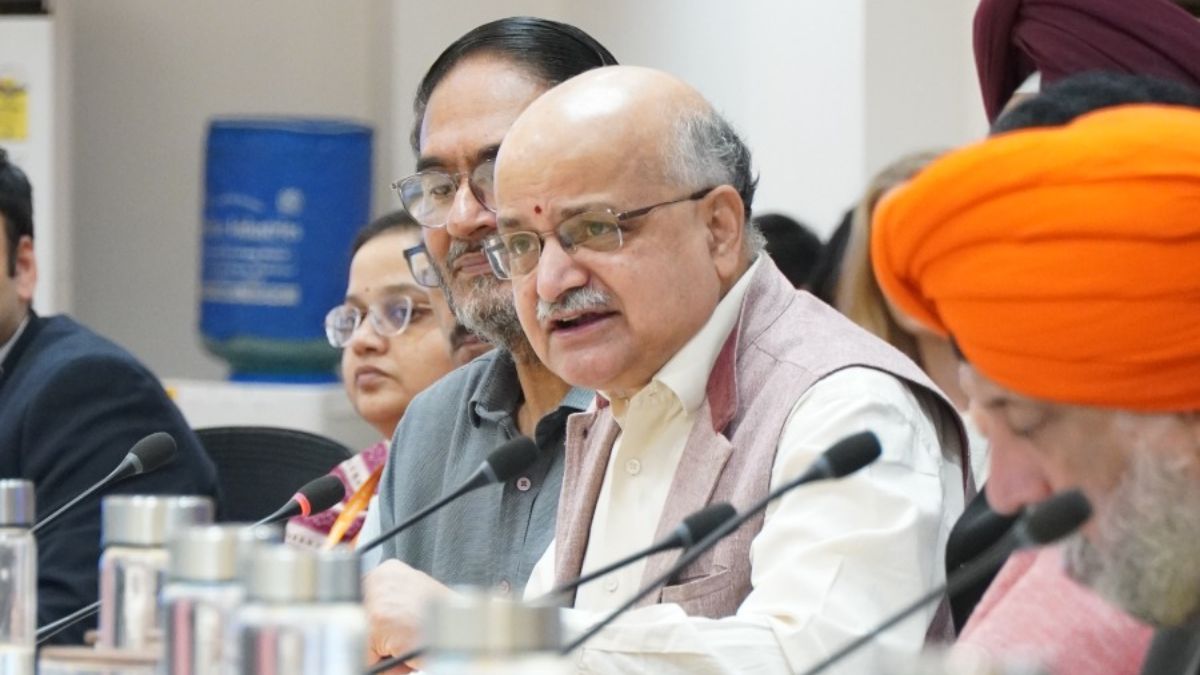Trust at the heart: Why Niti Aayog bats for decriminalisation of various tax offences
 Niti Aayog CEO BVR Subrahmanyam (centre) and others during the recent Niti Tax Policy Working Paper series | X
Niti Aayog CEO BVR Subrahmanyam (centre) and others during the recent Niti Tax Policy Working Paper series | X
The Union Government has, in the last few years, taken several steps to bring in tax transparency through various policy reforms, whether it was the Transparent Taxation – Honouring the Honest platform that was launched in 2020 or the Jan Vishwas Act that decriminalised and rationalised various offences.
Now, the Niti Aayog has further called for decriminalising various tax offences and rationalising punishments under the new Income Tax Act of 2025. It emphasises trust being at the heart of India’s tax administration, encouraging voluntary compliance and ensuring that criminal prosecution is an exception and not the norm.
In a new working paper released by the think tank, Niti Aayog has called for a shift away from “fear-based enforcement” towards “trust-based governance.”
“International experience shows that mature tax systems rely on trust-based governance, reserving criminal prosecution for deliberate and egregious non-compliance while addressing procedural or technical defaults through administrative and civil measures,” said BVR Subrahmanyam, CEO, Niti Aayog.
“By aligning with this approach, India can not only improve compliance outcomes and ease of doing business but also foster a culture of trust and cooperation between taxpayers and the administration,” he said.
The Income Tax Act, 2025, marks significant progress, omitting 13 offences, but continues to criminalise 35 actions and omissions across 13 provisions, the paper noted, adding that all these offences are punishable with imprisonment and fine.
Reserve punishment for acts causing real harm
Niti Aayog says only conduct that threatens core values like governance, public safety, law, and fiscal security should attract criminal sanctions.
Punishment must be reserved for acts causing real, quantifiable harm, not hypothetical or indirect inconvenience, it added. Importantly, it said offences should be clearly defined, fit-for-purpose, and subject to periodic legislative review to prevent redundancy or overreach.
Of the 35 criminal offences identified, the paper calls for 12 to be fully decriminalised and addressed through civil or monetary penalties alone. It also said that 17 offences should retain criminal liability only for fraudulent or malafide intent, removing criminal sanctions for good faith procedural lapses.
Further, the Niti Aayog paper has called for removing mandatory minimum imprisonment for most offences, enabling the judiciary to exercise discretion based on individual case circumstances. Also, courts should be permitted to choose between fines and imprisonment.
More importantly, it feels that offence definitions should be simplified and clarified.
“These reforms will help reduce litigation, enhance investor confidence, and lead to greater voluntary compliance and higher revenue collection by ensuring that enforcement mechanisms remain proportionate and fair,” said Subrahmanyam.
Business